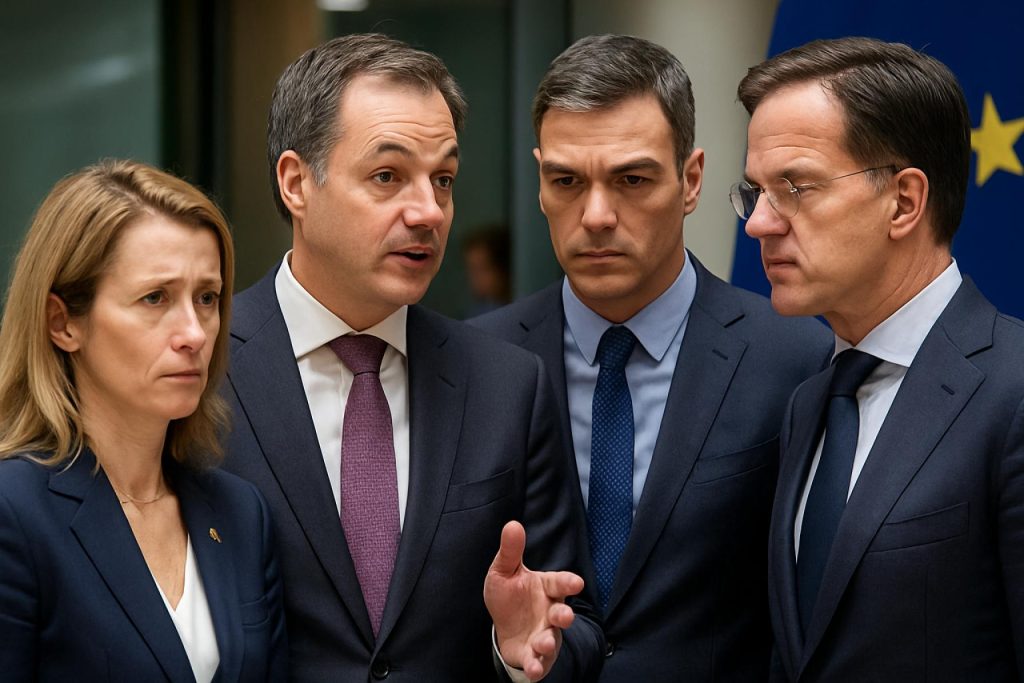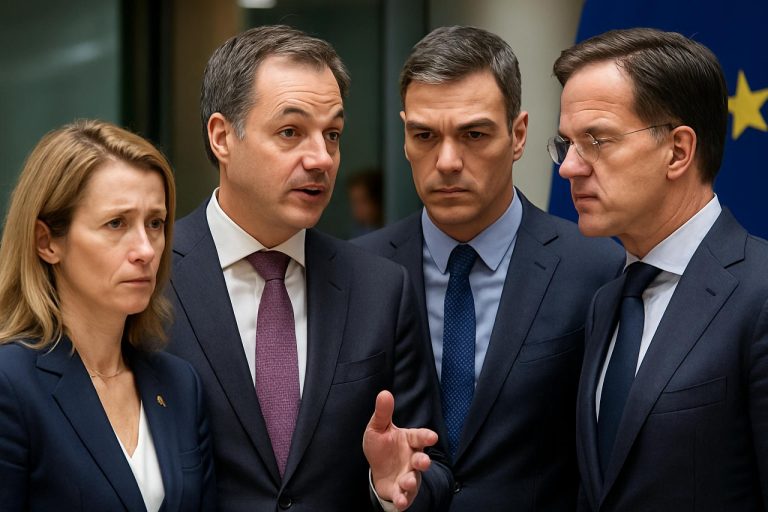
Russian LNG Ban Divides Europe: France and Belgium Push Back as Energy Battle Intensifies Ahead of 2027 Deadline
The EU’s bold plan to cut Russian LNG by 2027 hits turbulence as France and Belgium balk, demanding proof before ending billion-euro contracts.
- 97%: Share of Russian LNG imported by France, Belgium, Spain, and the Netherlands in 2024
- €6B: Value of Russian LNG purchases by these four EU nations in 2024
- 19%: Russian share of EU gas imports in 2024 (down from 45% in 2022)
- 2027: Year targeted by the EU Commission for zero Russian LNG imports
Europe’s ambitious new roadmap to ban all Russian liquefied natural gas (LNG) by 2027 is facing a dramatic standoff. As the EU Commission pushes for the ban, two of the bloc’s top buyers—France and Belgium—are hesitant, prioritizing strict economic and legal reviews before making any commitments. Meanwhile, Spain and the Netherlands are pressing for even tougher measures, despite their own long-term deals.
Tensions are mounting as the EU votes on the future of its energy security—and billions in gas contracts hang in the balance.
Why Are France and Belgium Hesitant About a Russian LNG Ban?
France and Belgium—Europe’s primary importers of Russian LNG—are demanding clarity. French officials emphasize securing stable alternatives first and cite their pivot to Qatar for new supplies. Belgium, on the other hand, refuses to move forward without a robust economic and technical impact assessment of a full Russian LNG ban.
Their caution is fueled by complex long-term business deals. France still holds a stake in Russia’s Yamal LNG venture through TotalEnergies, complicating its legal exposure. Belgium, meanwhile, has contracts that won’t expire until 2035.
How Are Spain and the Netherlands Responding?
Spain and the Netherlands—Europe’s third and fourth largest Russian LNG customers—support phasing out Russian deals, but they also face legal knots. Spain’s contract with Russia’s Novatek runs until 2042, and the Netherlands’ major deal with TotalEnergies extends to 2032.
Both countries back the EU’s timeline to ban short-term LNG contracts this year and end long-term ones by 2027. Spain is especially eager for a united EU front, but admits their binding contracts make a full cutoff complex.
For more on the global LNG market, check resources like IEA and BP.
Can the EU Afford to Break Ties with Russian Gas?
The EU has slashed Russian gas imports since the 2022 Ukraine invasion—from 45% pre-war to 19% in 2024. Yet, Russian LNG still represents a key supply, valued at over €6 billion this year. Despite sanctions and public pressure, Russian gas imports rebounded in 2024, keeping Moscow as a crucial player.
Meanwhile, alternative suppliers have stepped up. The US has emerged as the EU’s top LNG source, making up 45% of the market—yet experts caution that replacing Russian energy quickly could push up prices and destabilize supply chains.
What’s Next in the EU’s Russian Gas Exit Plan?
The EU Commission recently unveiled a two-step plan to ban Russian LNG by 2027, requiring a weighted majority of just 15 member states for passage. But without buy-in from France, Belgium, Spain, and the Netherlands—which make up the lion’s share of imports—the measure hangs in the balance.
Hungary and Slovakia are also poised to oppose the ban, arguing they cannot afford the switch to pricey alternatives.
A key impact analysis and legal package are expected from Brussels in the coming weeks, with energy ministers across the bloc bracing for fierce debates.
How Can the EU Ensure Energy Security Beyond Russian Gas?
To prevent a future supply crunch, the EU is racing to forge new partnerships from the Middle East, US, and North Africa. France recently inked a multi-decade LNG supply deal with Qatar, underscoring the urgency of diversifying away from Russian energy.
Experts suggest that speed, flexibility, and regional cooperation will be critical for a successful transition.
Your Next Move: Stay Informed as Europe’s Energy Future Unfolds!
- Watch for EU Commission economic impact analyses in June
- Follow updates from key energy players like EU Commission and US Department of Energy
- Track contract renegotiations for Spain and the Netherlands through 2032-2042
- Monitor alternative gas supply deals—especially US and Qatar LNG growth in Europe
Bookmark this page for the latest EU energy showdown news—your energy bill could depend on it!



